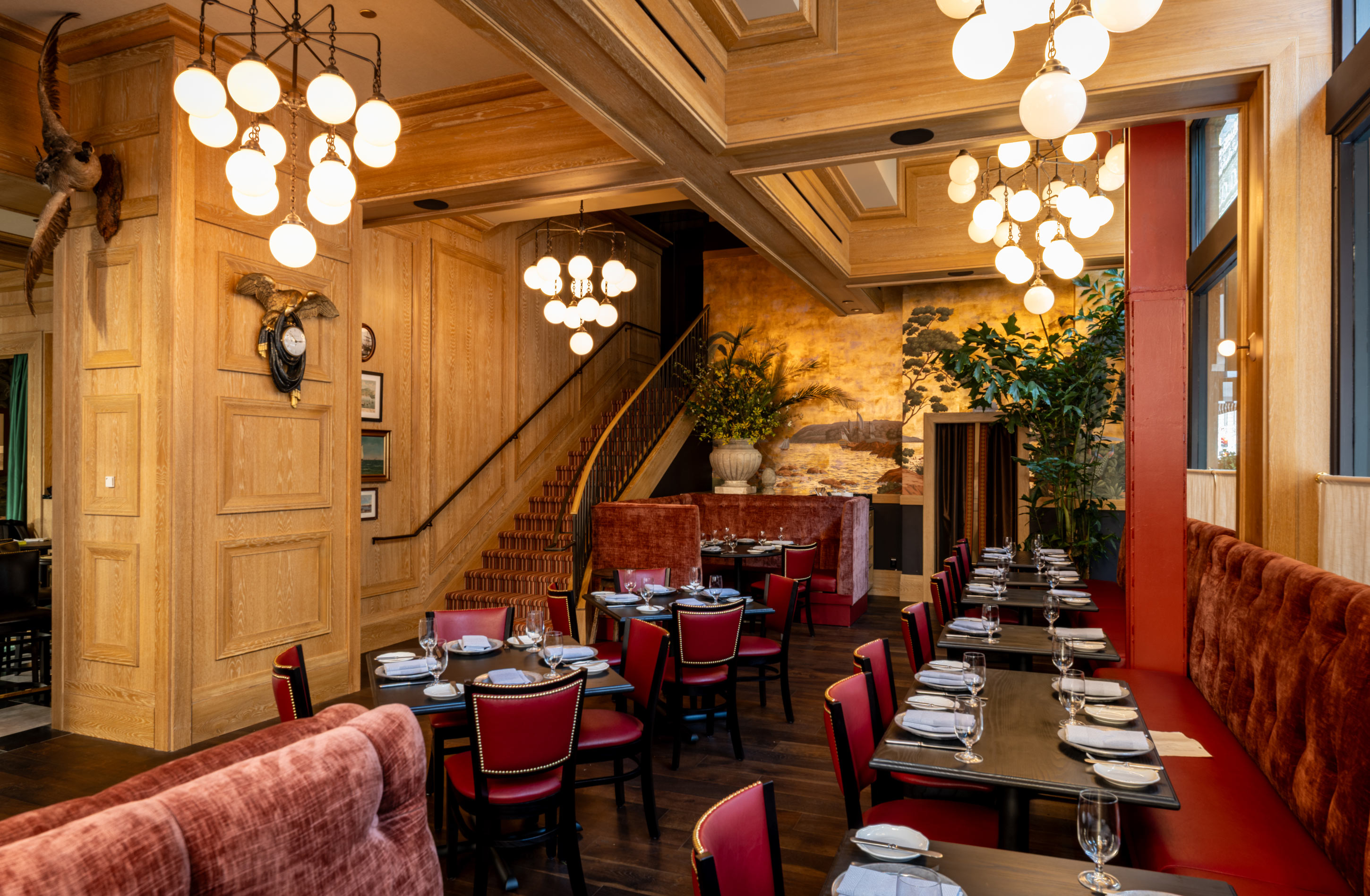
Weekend brunch service transforms restaurants into bustling hubs of activity, but it also creates operational nightmares that can make or break your weekend revenue. Between 10 a.m. and 1 p.m. on Saturdays, reservation lines explode with call volumes that would challenge even the most seasoned host staff. The reality? Most restaurants lose potential customers during these peak hours simply because they can't answer the phone fast enough.
Modern AI solutions are revolutionizing how restaurants handle these high-volume periods. (Hostie AI) AI-powered systems can manage hundreds of calls at once, ensuring no call goes unanswered and providing a seamless booking experience for customers. (Medium) With 87% of UAE restaurant operators, 79% in the U.S., 74% in the U.K. and 65% in Australia leveraging AI in their operations, the technology has moved from experimental to essential. (SevenRooms)
Weekend brunch represents the perfect storm of customer demand and operational complexity. During the critical 10 a.m. to 1 p.m. window, restaurants experience call volumes that can reach 300 concurrent calls per hour. This surge isn't just about reservations—customers are calling to check wait times, modify existing bookings, inquire about menu items, and coordinate large party arrangements.
Traditional reservation methods often led to overbookings, missed opportunities, and frustrated customers. (Loman AI) The challenge becomes even more complex when you consider that restaurants lose an average of 30% of potential customers due to long wait times. (Loman AI)
Every unanswered call during brunch hours represents lost revenue. When your host staff is overwhelmed managing walk-ins, seating guests, and handling the constant phone interruptions, service quality suffers across the board. The ripple effect impacts table turnover rates, customer satisfaction, and ultimately, your bottom line.
Guest communication is a major challenge in the fast-paced restaurant industry, with modern diners expecting quick responses, 24/7 availability, flexibility, and instant access to information. (Enso Connect) This expectation becomes even more pronounced during high-demand periods like weekend brunch service.
Unlike human staff who can handle one call at a time, AI systems can manage unlimited simultaneous conversations without compromising quality or speed. (Hostie AI) This capability transforms the entire customer experience during peak hours.
AI applications in restaurants include AI-powered chatbots for personalized ordering, predictive analytics for inventory management, and algorithms for personalized marketing. (AppFront) For brunch service specifically, AI excels at:
The numbers speak for themselves when it comes to AI performance during high-volume periods. ConverseNow, a leading Voice AI platform, handles over 2,000,000 conversations per month, repurposing over 83,000 labor hours. (ConverseNow) This level of efficiency becomes crucial during weekend brunch rushes when every minute counts.
Hostie AI can handle unlimited calls simultaneously, integrating seamlessly with existing reservation and POS systems to enhance operational efficiency and customer satisfaction. (Hostie AI) The platform supports 20 different languages, ensuring that language barriers never prevent a reservation. (Hostie AI)
When designing AI conversation flows for brunch service, the script must balance efficiency with hospitality. Here's a proven framework that handles the most common brunch scenarios:
Initial Greeting:
"Good morning! Thank you for calling [Restaurant Name]. I'm Jasmine, your AI assistant. I'd be happy to help you with reservations, check our current wait times, or answer questions about our brunch menu. How can I assist you today?"
Reservation Request Flow:
During peak brunch hours, managing walk-in overflow becomes critical. The AI script should seamlessly transition between reservation requests and walk-in inquiries:
Walk-in Inquiry Script:
"I'd be happy to check our current wait time for walk-ins. For a party of [size], our current estimated wait is [time]. I can add you to our waitlist, or would you prefer to make a reservation for a later time today?"
Waitlist Management:
"I've added you to our waitlist for [party size]. You're currently number [position] on the list. I'll send you text updates as your table becomes available. The estimated wait time is [duration]."
ChatGPT for restaurants can generate personalized responses for customer inquiries and handle feedback in real time, responding to online reviews or gathering comments from surveys. (HostMe) This capability proves invaluable during busy brunch periods when personalized service matters most.
Before implementing any AI solution, restaurants must understand their peak capacity requirements. Server load testing simulates real-world conditions to ensure the system can handle maximum demand without degradation.
Key Testing Scenarios:
| Scenario | Concurrent Calls | Duration | Expected Response Time |
|---|---|---|---|
| Normal Operations | 50-75 | Continuous | < 2 seconds |
| Moderate Peak | 150-200 | 30 minutes | < 3 seconds |
| Maximum Surge | 300+ | 15 minutes | < 5 seconds |
| System Recovery | 400+ | 5 minutes | Graceful degradation |
During load testing, monitor these critical metrics:
AI can automate tasks such as inventory management, food preparation, and cleaning, helping streamline operations and reduce costs. (AppFront) This automation extends to call handling, where AI systems maintain consistent performance regardless of volume.
One of the most significant benefits of AI phone systems is the ability to redeploy human staff from answering phones to providing exceptional floor service. Here's how to calculate optimal staffing adjustments:
Traditional Brunch Staffing Model:
AI-Enhanced Staffing Model:
To justify the investment in AI phone systems, consider these financial impacts:
Cost Savings:
Revenue Increases:
Hostie AI offers three different service plans with the Basic plan at $199 per month per location, Standard at $299 per month, and Premium at $399 per month. (Hostie AI) Even the Premium plan pays for itself within the first month when considering labor savings and revenue increases.
Modern AI phone systems must integrate seamlessly with existing restaurant technology stacks. Hostie AI integrates with major platforms across reservations, POS, ordering, and guest management. (Hostie AI) This integration ensures that all reservation data flows automatically into your existing systems without manual intervention.
Critical Integration Points:
During peak brunch hours, data accuracy becomes paramount. AI systems must maintain real-time synchronization across all platforms to prevent overbooking and ensure accurate wait time estimates. The system should update availability instantly when:
In June 2025, Dine Brands, the parent company of Applebee's and IHOP, announced plans to implement artificial intelligence in their restaurants, testing Voice AI Agents to handle customer orders over the phone. (Newo AI) This move demonstrates the industry-wide recognition of AI's value in managing high-volume periods.
AI systems can analyze historical data to predict brunch demand patterns, helping restaurants prepare for busy periods. By examining factors like weather, local events, holidays, and seasonal trends, AI can forecast call volumes and suggest optimal staffing levels.
Predictive Metrics:
Sophisticated AI systems can implement dynamic availability management, adjusting reservation slots based on real-time demand. During peak brunch hours, the system might:
AI is being used in content creation for restaurant marketing, with 51% of respondents using it for video creation, 42% for generating images, and 36% for copywriting. (SevenRooms) This marketing capability extends to promoting brunch specials and managing demand through targeted communications.
Implementing AI phone systems during brunch service requires careful planning to avoid disrupting existing operations. Follow this phased approach:
Phase 1: Off-Peak Testing (Weeks 1-2)
Phase 2: Limited Weekend Implementation (Weeks 3-4)
Phase 3: Full Weekend Deployment (Week 5+)
Hostie AI was founded by restaurant operators, ensuring the platform understands the unique challenges of restaurant service. (Hostie AI) This industry expertise translates into training programs that help staff adapt to AI-enhanced operations.
Training Focus Areas:
To ensure your AI implementation delivers expected results, track these critical KPIs:
Operational Metrics:
Financial Metrics:
Customer Experience Metrics:
The top five categories for AI use in restaurants globally are inventory management (33%), marketing and content creation, data analysis and reporting, customer service, and kitchen automation. (SevenRooms) Customer service, particularly phone handling, ranks among the most impactful applications.
While AI excels at standard reservation requests, complex scenarios require careful script design:
Large Party Coordination:
"For parties over 8 guests, I'll connect you with our events coordinator who can discuss seating arrangements and menu options. Please hold while I transfer your call."
Special Dietary Requirements:
"I'd be happy to note your dietary restrictions. Our chef can accommodate most allergies and preferences. Let me add these details to your reservation and have our manager follow up with specific menu options."
Modification Requests:
"I can help you modify your existing reservation. Let me pull up your booking using your phone number or confirmation code."
Even the most reliable AI systems need backup plans. Hostie AI can replace your phone system and will port your existing number to their service. (Hostie AI) This seamless integration includes failover capabilities:
The restaurant AI landscape continues evolving rapidly. Future enhancements will include:
As your restaurant grows, your AI system should scale accordingly. Hostie AI's AI can be updated using their operator app, allowing for continuous improvement and customization. (Hostie AI) This flexibility ensures your system evolves with your business needs.
Scalability Factors:
Weekend brunch service doesn't have to be a chaotic scramble of missed calls and overwhelmed staff. AI-powered phone systems offer a proven solution for handling 300+ concurrent calls while improving both operational efficiency and customer satisfaction.
The evidence is clear: restaurants implementing AI phone systems see immediate improvements in call handling capacity, staff productivity, and revenue generation. (Hostie AI) With proper planning, implementation, and optimization, AI transforms your busiest service period into your most profitable.
Hostie AI was built to feel human and intuitive, serving many restaurants with older demographics who appreciate the familiar phone experience enhanced by AI efficiency. (Hostie AI) This combination of cutting-edge technology with traditional hospitality values makes AI the perfect solution for modern brunch service challenges.
The question isn't whether AI will revolutionize restaurant phone operations—it's whether you'll be among the early adopters who gain competitive advantage, or wait until the technology becomes table stakes. With weekend brunch representing such a critical revenue opportunity, the time to act is now.
By implementing AI phone systems optimized for high-volume brunch service, you're not just solving today's operational challenges—you're building the foundation for sustainable growth and exceptional customer experiences that will define successful restaurants in the years ahead.
AI phone systems like Hostie can manage hundreds of simultaneous calls without any going unanswered, unlike human staff who can only handle one call at a time. These systems integrate directly with major reservation platforms to book tables in real-time, ensuring no potential customers are lost during peak brunch hours. The AI operates 24/7 and can handle complex requests while maintaining consistent service quality even during the busiest weekend rushes.
AI reservation systems demonstrate impressive performance metrics, with platforms like ConverseNow handling over 2 million conversations monthly and repurposing over 83,000 labor hours. During peak brunch hours, AI can maintain zero wait times while human staff typically lose 30% of potential customers due to long hold times. These systems achieve near-perfect availability rates and can process reservation requests in multiple languages simultaneously.
Modern AI phone systems integrate seamlessly with major reservation systems and POS platforms to manage bookings automatically. Systems like Hostie connect directly to leading reservation platforms, allowing the AI to check availability, make bookings, and send confirmations in real-time. This integration ensures that all reservations are synchronized across platforms, preventing double-bookings and maintaining accurate table availability throughout busy service periods.
Effective AI conversation scripts for brunch reservations focus on gathering essential information quickly while maintaining a friendly tone. The scripts should include greeting protocols, availability checking, party size confirmation, special request handling, and confirmation details. AI systems can be programmed with customizable responses that match the restaurant's brand voice while efficiently processing high-volume calls during weekend brunch rushes.
AI systems provide valuable data analytics that help restaurants optimize staffing levels based on historical call volumes and reservation patterns. By analyzing peak call times, average call duration, and booking conversion rates, restaurants can determine the exact number of human staff needed to complement their AI system. This data-driven approach helps reduce labor costs while ensuring excellent customer service during the busiest brunch periods.
Yes, advanced AI phone systems can handle complex requests including dietary restrictions, seating preferences, special occasions, and group bookings. These systems are trained to recognize and process various types of special requests while escalating truly complex situations to human staff when necessary. The AI can also provide information about menu options, parking availability, and restaurant policies, creating a comprehensive customer service experience.
RELATED


